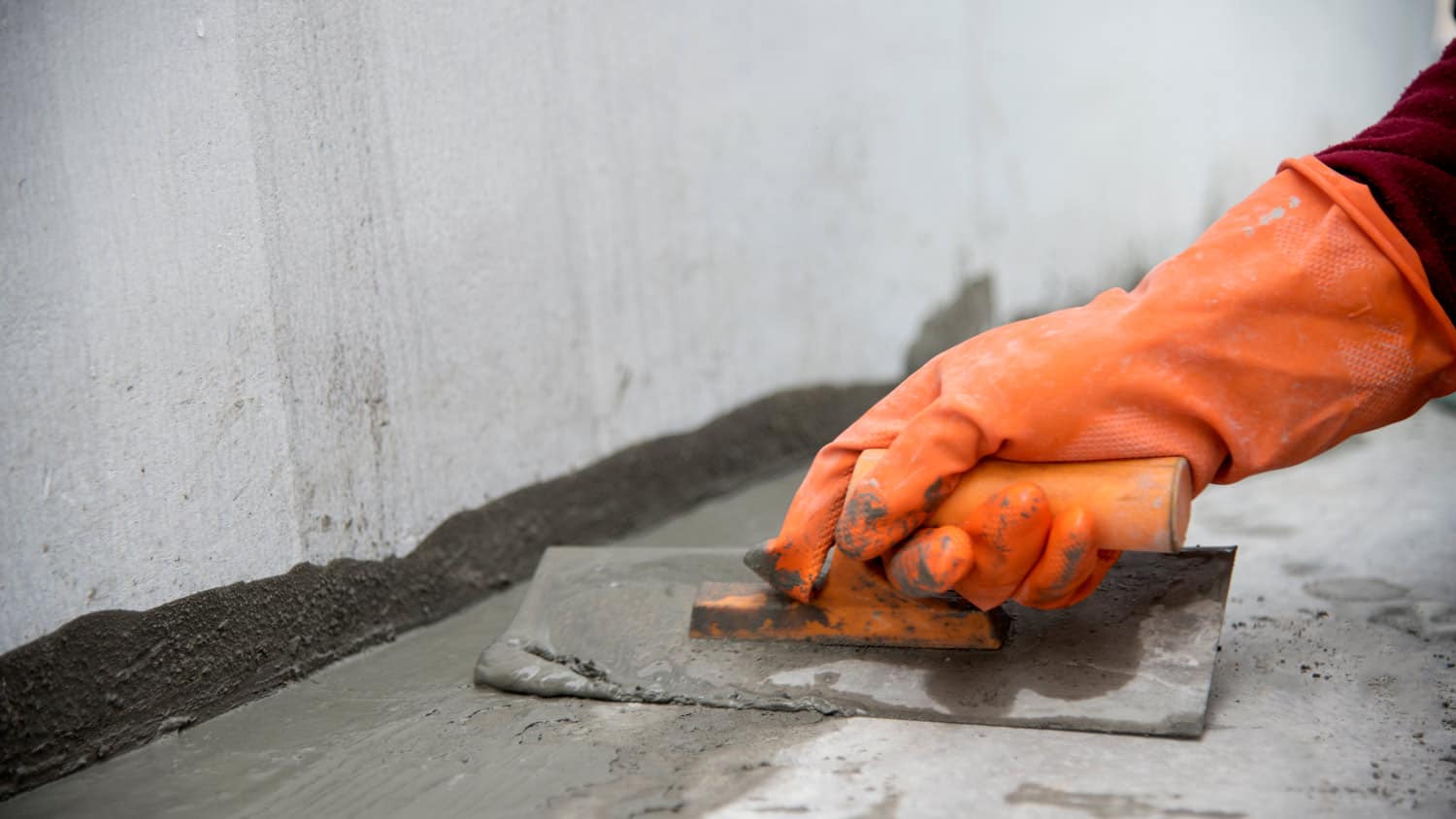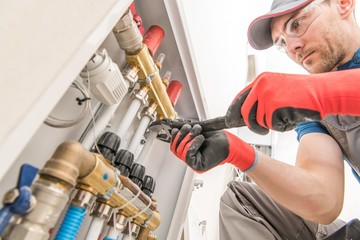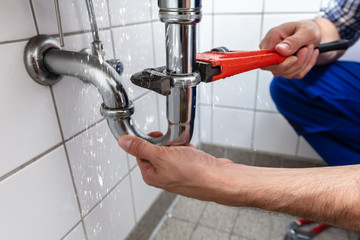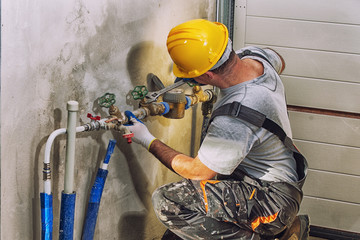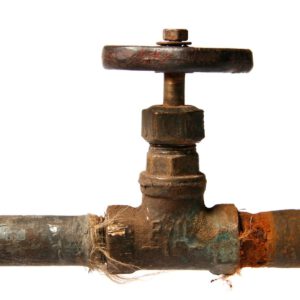A slab leak is a hidden problem that can lead to extensive water damage, higher utility bills, and expensive repairs. If you suspect a slab leak, contact your plumber immediately.
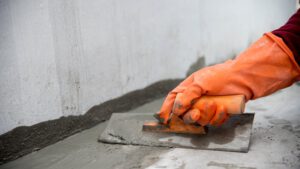
The most obvious warning signs of a slab leak include an increase in your water bill (a one-time jump or a steady rise over time), warm spots on the floors and carpets, and wet stains. Click Me for more information.
A slab leak affects the pressurized water pipes in the concrete foundation. This can cause a variety of problems in your home. Some of these are easy to notice, such as a sudden drop in water pressure and higher than normal water bills. Other symptoms are harder to spot and may require a professional inspection.
One of the biggest red flags of a slab leak is an abnormally high water bill with no explanation. Other signs include a constant rushing sound under your home and water stains on your flooring or carpeting.
A common cause of a slab leak is corrosion or abrasion caused by prolonged periods of stress or pressure on the pipes. This is more likely to occur in older homes, especially those with copper plumbing. Pipes can also become prone to leaks if they are dented or kinked during installation.
Slab leaks can be repaired by replacing the damaged section of pipe or repiping your entire plumbing system. A plumber can recommend the best option for your situation.
Licensed plumbers can listen to your plumbing with electronic devices to determine where the source of the leak is located. They can also use scanners or line-tracing equipment to find the location of your slab leak.
A re-pipe is generally the preferred method of repairing a slab leak because it eliminates all of the old lines and prevents future problems. However, it is the most expensive option because the plumber has to cut open your walls and flooring in a few places. If your plumbing repairs are needed because of a slab leak, contact a reputable plumbing company that specializes in these kinds of repairs. They can advise you on what options are best for your situation, and they can get to work right away. The sooner you take care of the problem, the less damage it will cause to your foundation, your home, and your plumbing system.
smell of water
The saturation of the ground under a slab leak encourages the growth of mildew and mold, which may have an unpleasant musty odor. If you notice this smell, especially if it’s getting stronger over time, it could indicate a slab leak in the water lines below your home.
Unexplainedly high water bills are another common symptom of a slab leak. If you find that your water bill has gone up significantly but you haven’t had any additional water-using appliances on, this is a sign that there is a leak in the plumbing system beneath your house.
You may also notice that your hot water runs out faster than usual. This occurs because the leaking water is taking the heat out of your home’s heating system.
If you notice this change, you should turn off all your water fixtures and check the meter dial on the street to see if it’s still spinning. If it is, this means your home’s plumbing is using water even though you have turned off every faucet and checked the meter.
Many homeowners think that their homeowner’s insurance covers the cost of a slab leak repair, but this is often not the case. Most insurance policies only cover sudden and catastrophic damage, not gradual, ongoing damages that occur over time.
Slab leaks can be quite dangerous if they are not repaired immediately. The best way to avoid them is by staying alert and noticing any signs of them early on. If you do suspect that you have a slab leak, call a professional plumber right away. They will use acoustic, sonic, pressure, and electromagnetic detection tools to locate the problem and determine the best method for fixing it.
Water Stains
Slab leaks often cause puddles of water on the ground or in places they shouldn’t be. These puddles can also appear inside the home, usually under a sink or near appliances. When these puddles aren’t addressed quickly, they can lead to mold growth or even structural damage in the house.
Moisture under the house isn’t just bad for the structure; it’s bad for the health of the family living there. If left undetected for too long, a slab leak can encourage mold growth, which can cause respiratory issues and a range of other health problems.
In addition to puddles, signs of a slab leak include dark spots on the floor or carpets that have no apparent origin. This is because the moisture can seep through the concrete and into the house, causing staining or warping of flooring materials. It may even corrode metal plumbing fixtures in your home.
A professional plumber can fix a slab leak in one of several ways. The first is to jackhammer the slab and dig out the broken section of pipe. The second option is to tunnel through the dirt underneath the house, and the third is to abandon the old line under the house and run a new one. Pipe bursting, also known as pipe splitting, is another method that can be used to replace damaged copper lines without digging up the entire slab.
A slab leak isn’t something that homeowners should attempt to fix on their own, either because of the difficulty and risk involved in breaking open a concrete slab or because they can expect to get very little help from their insurance company. The reason is that most policies only cover damage that occurs suddenly and catastrophically, and a slab leak can go on for years while washing away soil and wreaking havoc on the home’s plumbing system.
Wet Spots
Slab leaks result in moisture, and the moist areas encourage mold and mildew growth. Mold can eat away at the foundation, flooring, and carpeting of your home. Eventually, the mold can become toxic and affect your health. The musty smell that develops as a result of the leak is also a warning sign and needs to be addressed immediately. Moisture from slab leaks can also cause the ground beneath your home to swell, which can lead to cracked and uneven floors.
Wet spots on your floor and carpeting are another indicator that there is a slab leak. You may also notice that the floor is warm to the touch. These wet spots occur when the water underneath your house gets trapped and has nowhere to go. Over time, the moisture can damage wood and linoleum floors and even cause them to buckle or warp.
Another common sign of a slab leak is an unexplained increase in your water bill. The water that is leaking under your home is constantly running 24 hours a day, which means that your water bill will be higher than usual.
If you suspect that you have a slab leak, it is essential to call a plumber in Manteca, CA, as soon as possible to diagnose and repair the problem. Leaks can be costly to fix, and they can lead to serious structural damage if left untreated. It is better to spend the money on a plumbing repair company now than to pay for major repairs later on. A licensed plumber will be able to use acoustic, sonic, pressure, electromagnetic, and gas tracer detection tools to locate the leak and repair it before the damage becomes worse.
Floor Cracks
While some maintenance troubles are obvious, others develop quietly. A slab leak is one of them. Often, only after extensive damage has occurred do homeowners realize something is wrong. If you’ve noticed abnormally high water bills, a decrease in water pressure, wet spots or puddles on the floor, or if your doors and windows are difficult to open or close, you should have your pipes checked for a possible slab leak.
Slab leaks cause water to saturate the soil beneath your home, which can erode and create voids under the foundation. This shifts the foundation, causing wall cracks, floor cracks, and gaps. It can even cause your doors and windows to become misaligned or difficult to open or close.
Depending on the location of your leak, there are several ways it can be fixed. Probably the most common is to break through the concrete slab and dig down to the leak. This is the most destructive option, but it is also one of the most effective. Plumbers can use a variety of methods to accurately pinpoint the leak location, including electronic listening tools and line-tracing equipment.
Other options to consider include abandoning the old plumbing and rerouting it or using an existing copper pipe as a sleeve. This is less disruptive and more cost-effective, but may not be suitable for older homes with corroded pipes or large leaks. A third option is to use a non-toxic epoxy coating to cover the interior surface of your pipes, which can be a good choice for pinholes or minor leaks. But it’s important to understand that this is a temporary solution and won’t fix the root of your problem.

